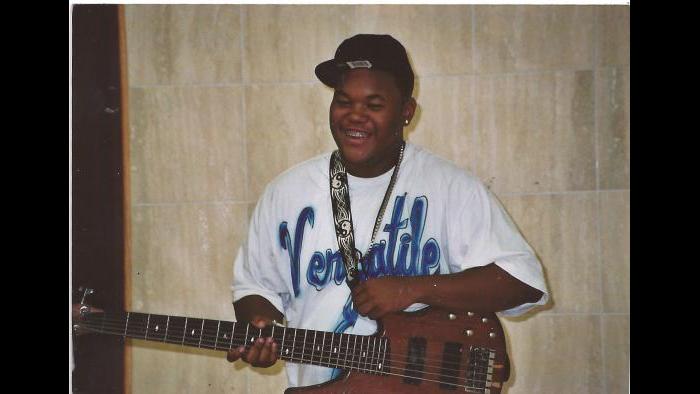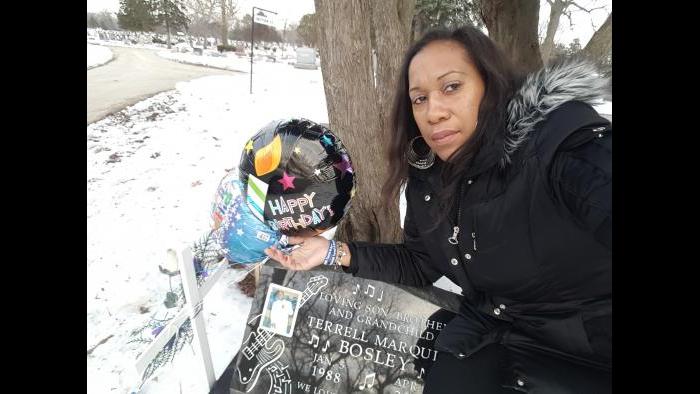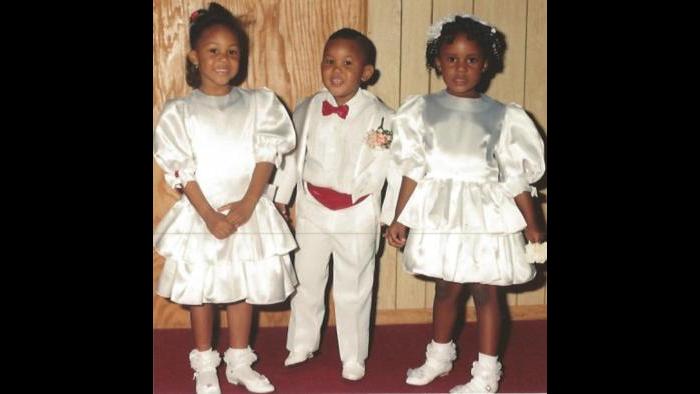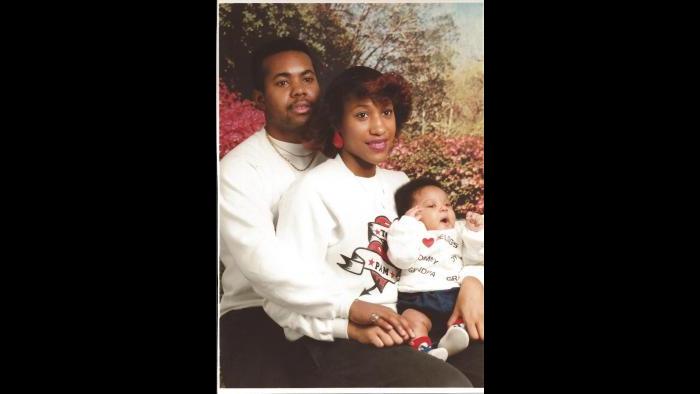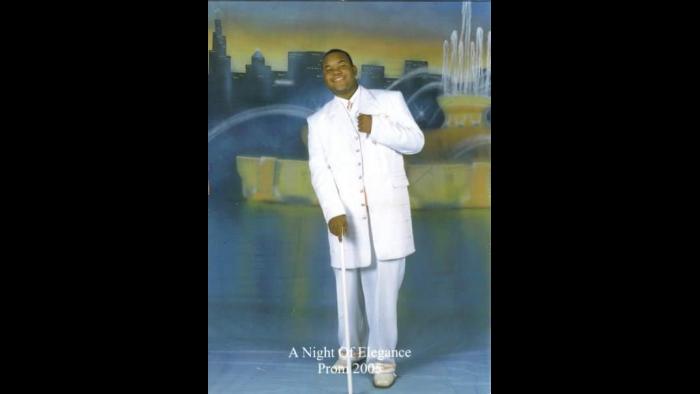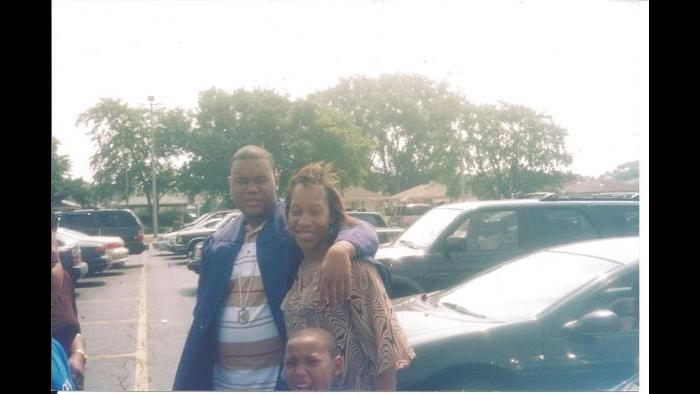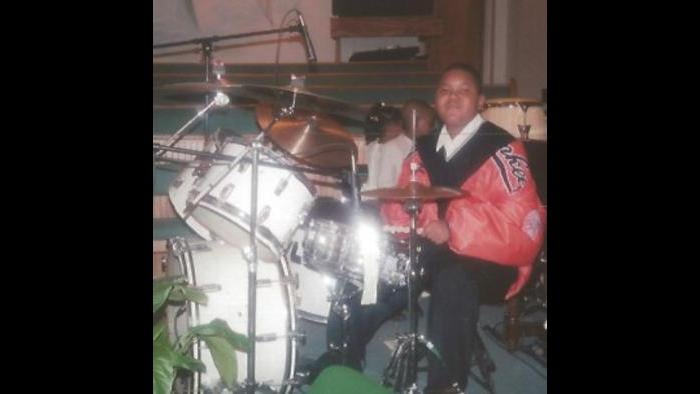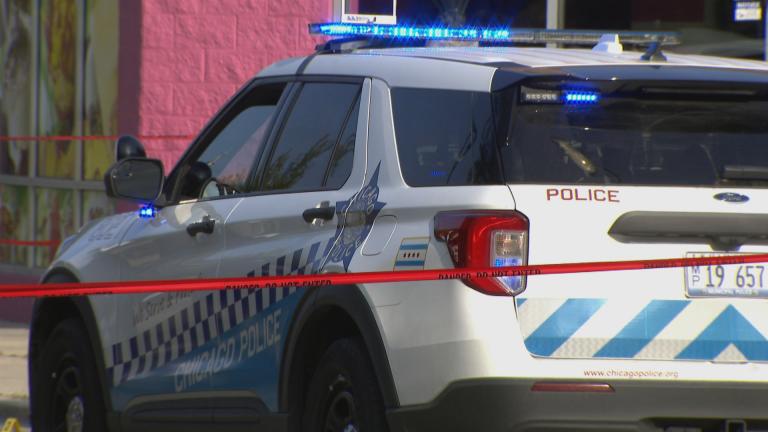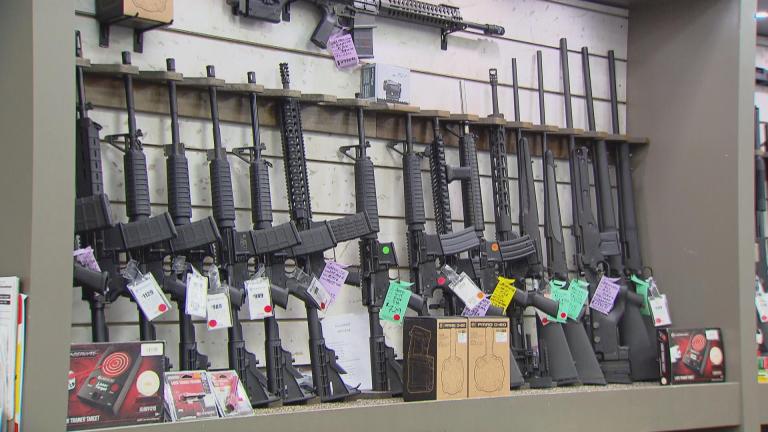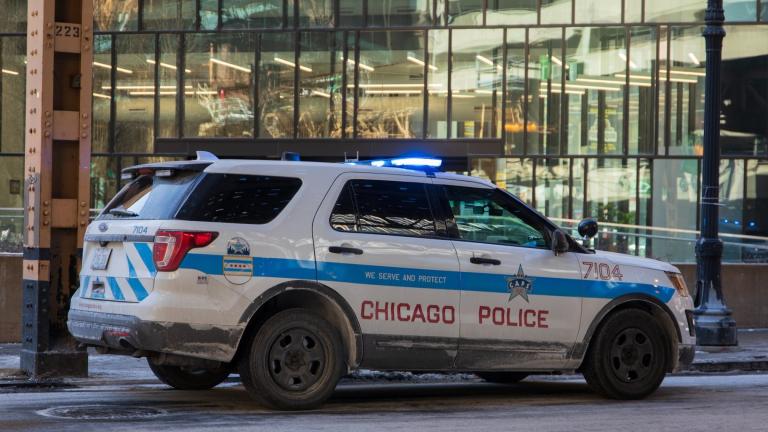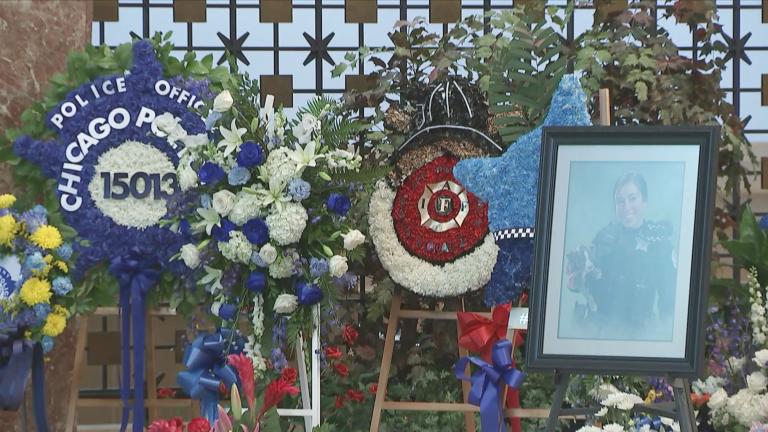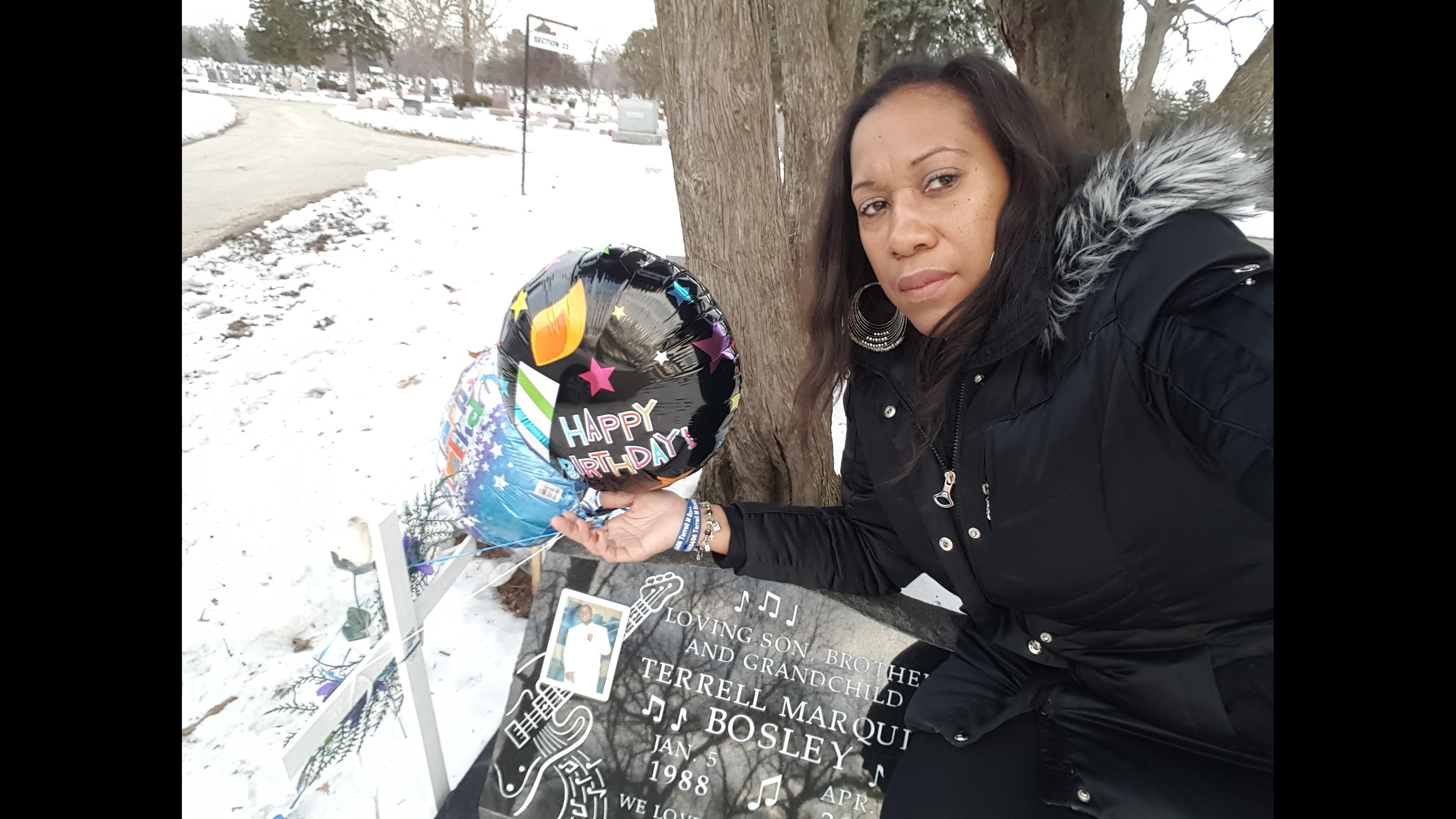 (Courtesy of Pam Bosley)
(Courtesy of Pam Bosley)
The shooting death of Pam Bosley’s son, Terrell, nearly killed her.
“I tried to take my life twice that year. The pain was so unbearable,” Bosley said. “It feels like someone is tearing your heart apart. You don’t want to get up. You have no desire to live anymore.”
Terrell Bosley was killed April 4, 2006. He was unloading music equipment outside of the Lights of Zion Missionary Bible Church when someone started shooting.
Terrell was a freshman at Olive-Harvey College, where he was studying music. “He was working a job and doing everything right,” Bosley said. “You never expect this to happen.”
Terrell’s death was not only hard on Bosley, but her family as well.
“It not only affects me as a mom, but affects my husband and my children,” she said. “My younger son used to pray that no one else in his family would get shot.”
The prayers of family and friends, and “the help of God,” helped Bosley through her darkest moments.
“It’s a place you never think you’re going to get through. It was with the help of God that I did,” she said. “That’s where my strength comes from and why I’m able to do what I do now – healing other people.”
Bosley is a violence prevention manager at the ARK of St. Sabina and is the co-founder of Purpose Over Pain, a support organization formed by parents who lost children to gun violence that also advocates for stricter gun control legislation.
“We all came together to form one group and came up with Purpose Over Pain because God’s got a purpose for our pain and we’re united together,” Bosley said. The organization hosts a support group meeting for parents on the second Thursday of each month.
As Purpose Over Pain enters its 10th year, it is teaming up with several companies to bring free grief and trauma counseling to families who have lost loved ones to gun violence through the formation of Allies of Innocence.
The initiative was the brainchild of Fay Ferguson, co-CEO of Burrell Communications, who felt compelled to take action as the city’s gun violence reached historic levels in 2016.
While there were initiatives aimed at quelling the violence, enacting tougher gun measures and connecting people with jobs and mentoring opportunities, it seemed to Ferguson there was a “missing piece to the whole puzzle.”
“There was nothing that addressed healing, trying to help people who go through this,” she said. “I couldn’t imagine losing my son or anyone to gun violence. These people are going untreated year after year.”
The counseling is really needed, says Bosley, who received counseling and attended a support group after the death of her son, Terrell.
After the loss of a child, “you can’t function,” Bosley said. “You have PTSD.”
In addition to Purpose Over Pain, Ferguson teamed up with Chicago-based law firm Winston & Strawn, LLP and Perspectives, a behavioral health care firm, to form Allies of Innocence.
“For me, it made imminent sense to leverage our skills in helping community members who don’t have access to resources,” said Bernie Dyme, president, CEO and founder of Perspectives.
![]()
“It feels like someone is tearing your heart apart. You don’t want to get up. You have no desire to live anymore.”
–Pam Bosley
When trauma and grief go untreated, it manifests in other ways, and in communities that are experiencing the most gun violence, it becomes compounded, Dyme said.
“Not only are people losing their kids, but it’s not the first time they’ve experienced it. They’ve lost a neighbor, other kids, other family members. Compounded grief leaves people feeling raw, wounded and sore,” he added. “One way people act out is anger which perpetuates the sense of helplessness and hopelessness.”
Perspectives is recruiting mental health professionals from South and West Side communities to provide services for those who have lost family members to gun violence.
“If we are going to engage people, the No. 1 thing people need to see are people they can feel comfortable with and can relate to,” Dyme said. “I could say I understand that position, but I have much less credibility than someone who lives in Englewood, who grew up in that area.”
Bosley agrees.
“If you’re from the community, you most likely lost someone too or know someone who was murdered,” Bosley said. “It’s better because if you’re talking with someone from the community, they kind of know what you’re going through.”
As Allies of Innocence begins outreach to victims of gun violence, the organization is seeking donations to help cover the cost of services – all of which will be provided to survivors of gun violence at no cost.
“They’re low income, they don’t have insurance,” Ferguson said. “We don’t want to charge them and we will not charge them anything.”
While some health providers will donate their time, others may charge a nominal fee, hence the need for donations. The organization is seeking to raise $250,000 through the nonprofit Resilience Partners, which will collect donations and pay mental health providers on behalf of Allies of Innocence.
“We certainly don’t want to turn anyone away but we can only do as much as the money raised will stretch,” Ferguson said. “We really hope that people take advantage of this. My heart goes out to the survivors and particularly the children. I think it is up to us to make a difference and I believe that we can.”
For more information about Allies of Innocence, visit the group's Facebook page.
Follow Kristen Thometz on Twitter: @kristenthometz
Related stories:
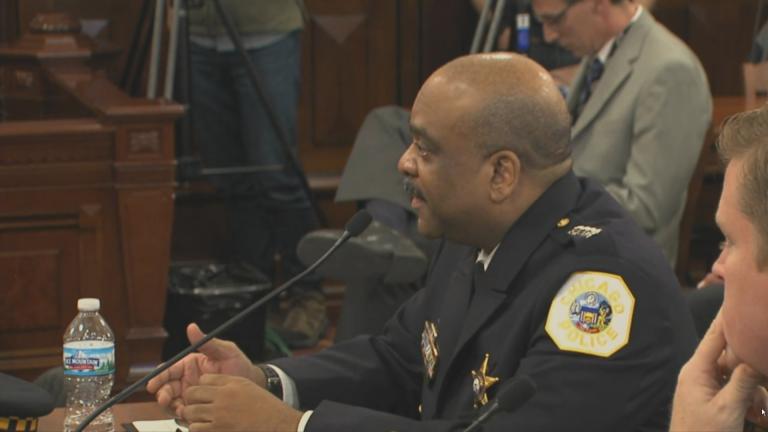 Chicago’s Top Cop Pushes for Tougher Sentences for Repeat Gun Offenders
Chicago’s Top Cop Pushes for Tougher Sentences for Repeat Gun Offenders
March 9: Police Superintendent Eddie Johnson testifies in Springfield in favor of tougher sentences for repeat gun offenders. But will his proposed changes actually make the city safer?
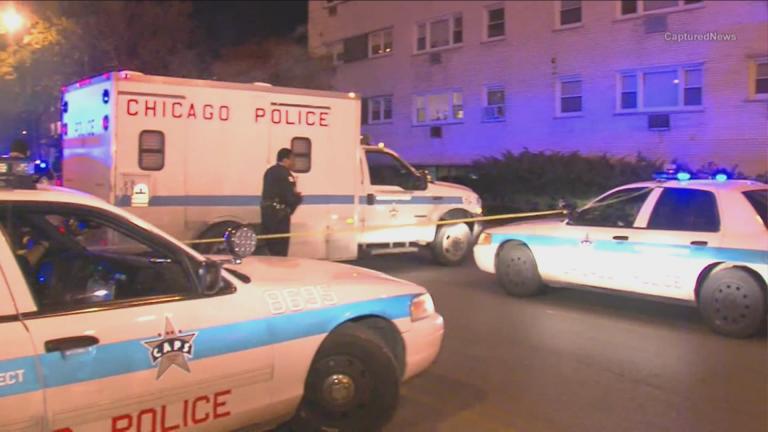 New Group Aims to Study, Address Root Causes of Chicago Gun Violence
New Group Aims to Study, Address Root Causes of Chicago Gun Violence
Feb. 7: Hoping to capitalize on the violence prevention research already being conducted locally, the group hopes to spur new research initiatives and facilitate ongoing community-based violence prevention efforts.
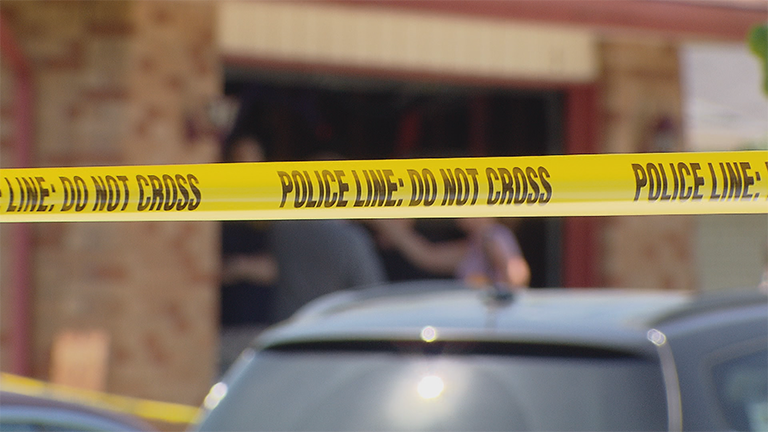 Study: Exposure to Violence Can Trigger PTSD Symptoms
Study: Exposure to Violence Can Trigger PTSD Symptoms
Dec. 16, 2016: A new study reveals a possible link between African-American women who live in impoverished neighborhoods and the chances of developing post-traumatic stress disorder.

